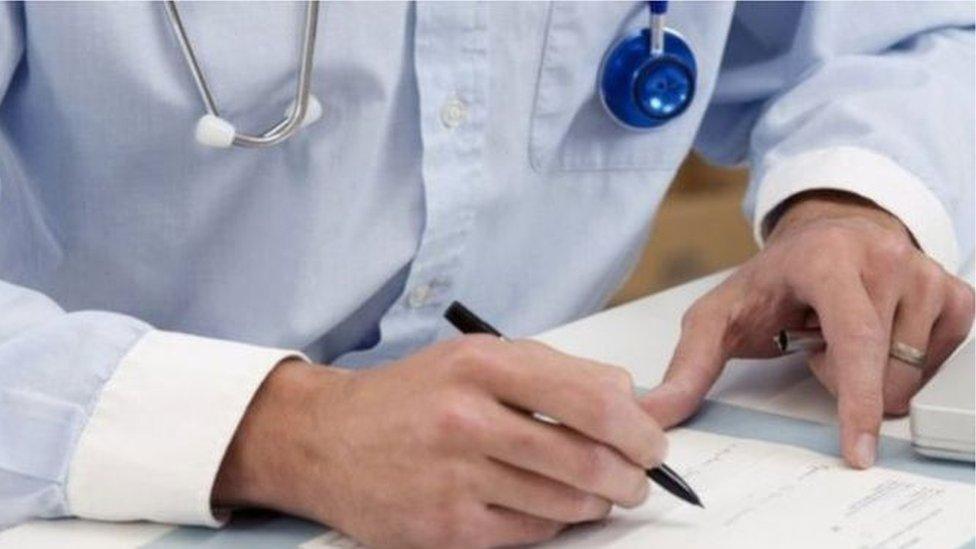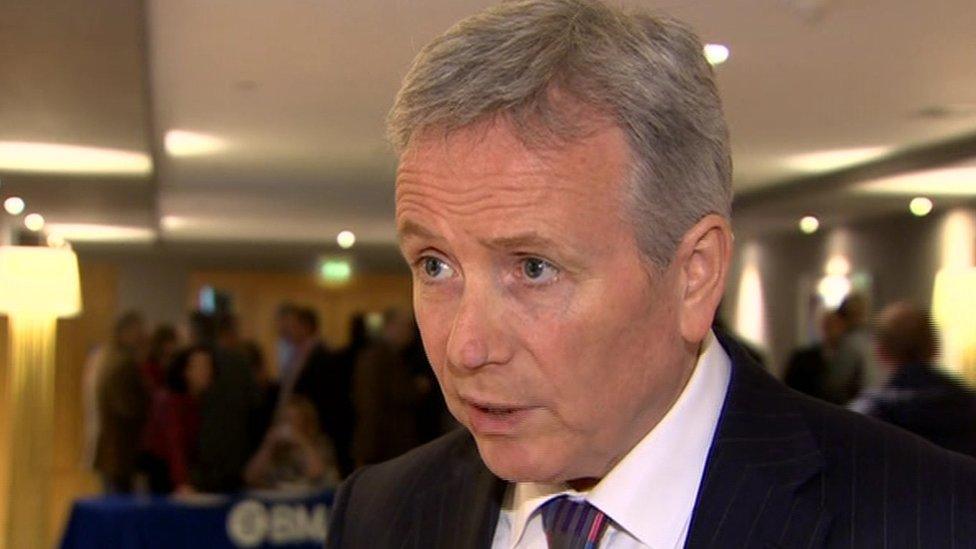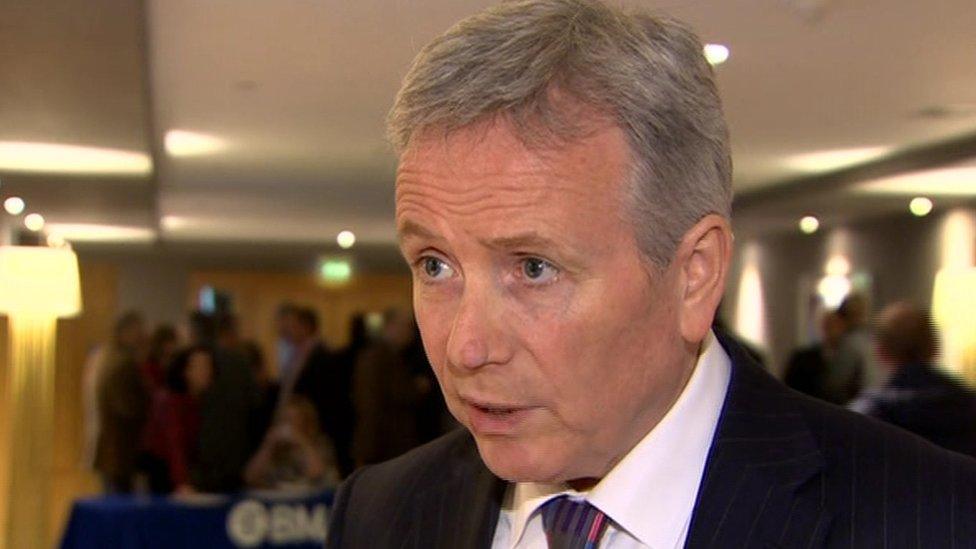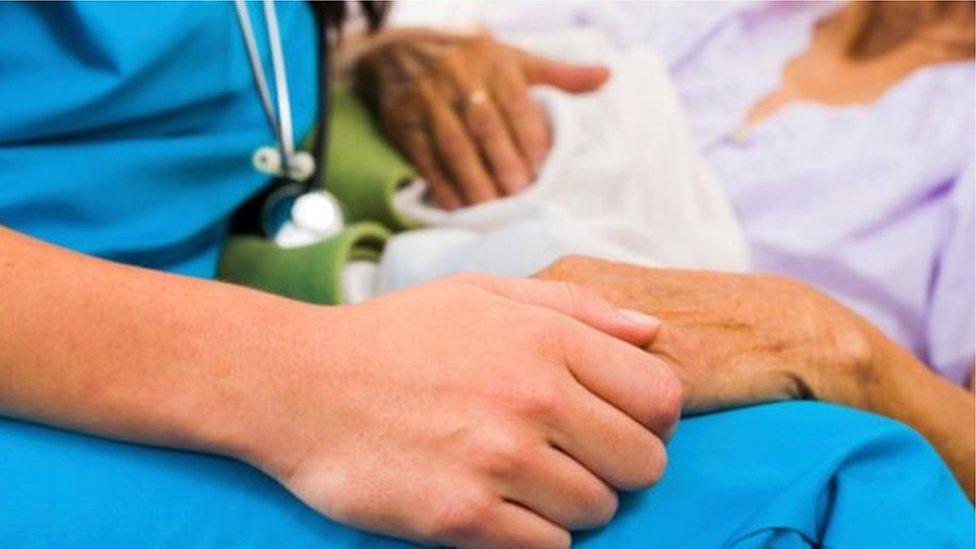NI GPs plan to withdraw services to deal with workload
- Published

There is a great deal of anger over recent budget cuts
GPs in Northern Ireland are hitting back at increased workload and budget cuts by agreeing a range of contingency plans that will affect patients.
It includes no longer arranging out-patient ambulance transport or completing some insurance paperwork.
GPs will not act as "middle men" but refer patients back to hospitals for test results and appointments.
A senior BMA source told the BBC there is anger over budget cuts and the collapse of the Stormont executive.
The move is designed to help doctors manage their workload against a backdrop of growing patient numbers and reduced workforce.

Dr Tom Black said the move was 'unavoidable'
'Unavoidable'
Dr Tom Black, Chair of BMA's Northern Ireland general Practitioners committee, said the move was unavoidable.
"In the absence of a rescue plan for General Practice, and to help address the ongoing crisis and as a response to funding cuts, we have had to take steps to withdraw some services, so that we can maintain our core service - seeing patients."
This is fighting talk from GPs but, at this stage, there is no indication when the measures will kick in.
It seems that the move is all about cutting back on administration work so there is more time for patients.
'More time to see patients'
Dr Tom Black said: "Many prescriptions are requested for items such as cough bottles, mouth washes, shampoos and sun creams all of which are available over the counter for a small charge.
"By no longer providing prescriptions for these items, it will free up a lot of time at practices and would make phone lines more accessible and means a GP has more time to see patients."
The Northern Ireland General Practice Committee has called for three measures "to prevent the collapse of general practice across the country'.
Investment of 10% of the Northern Ireland healthcare budget on a safe, sustainable GP service for patients
Training and recruitment of more GPs so practices at risk of closure can stay open and meet the needs of patients
Reducing bureaucracy and improve IT systems so more time can be spent providing care to patients
With a small number of GP surgeries already being forced to close, and more to follow with GPs retiring, it is expected that surgeries will close their lists to new patients.
More half day closures among surgeries are also expected.
- Published25 January 2017

- Published12 December 2016

- Published27 October 2016

- Published25 October 2016
